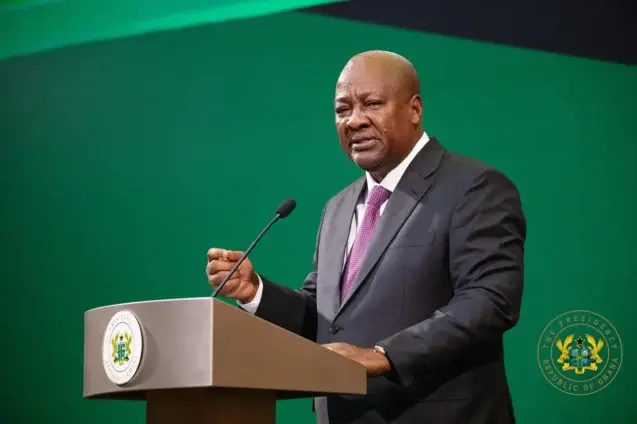The sight of Sammy Gyamfi, the National Communications Officer of the National Democratic Congress (NDC), gifting money to Patricia Asiedua, widely known as Nana Agradaa or Mama Pat, ignited a firestorm of controversy in Ghana. The incident, captured on video and rapidly circulated online, drew condemnation from various quarters. The Presidency’s subsequent decision to address the matter with a formal caution, following an apology from Mr. Gyamfi, has only intensified the debate, particularly after criticism from figures like Haruna Mohammed, the New Patriotic Party’s (NPP) Deputy General Secretary.
At the heart of the controversy lies a fundamental question: Was the Presidency’s response to the **Sammy Gyamfi gifting saga** a justified act of closure, or was it, as the NPP suggests, a baseless decision that undermines principles of accountability and ethical conduct in public life?
The Presidency’s Stance on the Sammy Gyamfi Gifting Incident
The viral video depicting Sammy Gyamfi gifting money to Mama Pat sparked immediate public outcry. Many Ghanaians expressed disappointment and concern, viewing the act as inappropriate, given Mr. Gyamfi’s position as a prominent figure in a major political party. The calls for action grew louder, demanding transparency and accountability regarding the circumstances surrounding the **Sammy Gyamfi gifting saga**.
In the wake of the public criticism, Sammy Gyamfi issued an apology, acknowledging what he described as an “unfortunate act of indiscretion.” This apology, however, did little to quell the controversy, as many felt it did not adequately address the underlying ethical questions.
In response to the incident, the Presidency, through the Chief of Staff, issued a formal caution to Sammy Gyamfi. According to Felix Kwakye Ofosu, speaking on behalf of the government, “The Presidency does not believe that any further actions ought to be taken beyond the apology and the caution.” This statement signaled the government’s intention to consider the matter closed.
Haruna Mohammed’s Criticism and Concerns
The Presidency’s decision, however, did not sit well with all. Haruna Mohammed, the Deputy General Secretary of the NPP, voiced strong criticism of the government’s handling of the **Sammy Gyamfi gifting saga**. His central argument revolved around the perceived lack of a solid foundation for the caution issued by the Presidency.
“The action is not based on any fine base; the action is based on their own resolution,” Mr. Mohammed asserted, questioning the legitimacy and thoroughness of the process that led to the caution. He implied that the Presidency’s decision was not rooted in any formal investigation or established protocols but rather on a subjective assessment of the situation.
Mr. Mohammed also raised concerns about the precedent set by accepting an apology as a sufficient resolution. “We are not convinced that someone should apologise, and that’s the end of it. So today, if any other minister commits a crime, the person comes out to apologise and that is all?” he questioned. This concern highlights a fear that relying solely on apologies could create a system of impunity, where public officials might be emboldened to engage in unethical or even unlawful behavior, knowing that a simple apology could shield them from further consequences.
Analyzing the Arguments – Was the Decision Baseless?
Evaluating whether the Presidency’s decision in the **Sammy Gyamfi gifting saga** was truly baseless requires a careful examination of the available evidence and the broader context. On one hand, the Presidency likely considered Sammy Gyamfi’s apology as a mitigating factor, perhaps believing that the acknowledgment of wrongdoing warranted a less severe response. The political climate and potential ramifications of a harsher punishment might have also influenced the decision.
On the other hand, Haruna Mohammed’s concerns about the lack of a formal investigation and the potential for impunity carry significant weight. Without a thorough examination of the circumstances surrounding the gifting incident, it is difficult to ascertain the full extent of any wrongdoing and to ensure that appropriate lessons are learned. The reliance on an apology alone, without further action, could indeed create a perception that public officials are not held to the same standards of accountability as ordinary citizens.
The **Sammy Gyamfi gifting saga** presents a complex ethical and political dilemma. While the Presidency sought to resolve the matter with a caution following Sammy Gyamfi’s apology, concerns remain about the thoroughness of the process and the potential implications for accountability. Ultimately, the question of whether the decision was baseless is a matter of interpretation, hinging on one’s perspective regarding the balance between forgiveness and the need for upholding ethical standards in public office. The incident serves as a reminder of the importance of transparency and ethical behavior in public life and the need for ongoing dialogue about how best to ensure accountability among those in positions of power.
Image Source: MYJOYONLINE






















